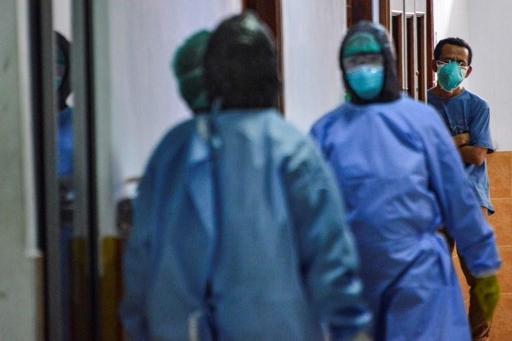The World Health Organisation (WHO) has declared the Chinese-originated coronavirus outbreak as a health emergency of international concern.
The globe's top health authority took the decision as the death toll from the outbreak rose, jumping from 170 on Thursday to 213 on Friday, according to Chinese authorities.
All confirmed deaths from the virus have so far taken place in China, but cases continue to be detected abroad, with 83 confirmed cases in 18 countries outside China, according to the WHO.
The declaration of a Public Health Emergency of International Concern (PHEIC) is intended to signal to countries that a coordinated international response is needed to contain the virus.
"Countries should place particular emphasis on reducing human infection, prevention of secondary transmission and international spread," the WHO wrote in a statement.
Related News
- Coronavirus fears trap 6,000 passengers on cruise ship in Italy
- Belgians to be evacuated from coronavirus epicentre in China
- Belgian tour operators to cancel all China trips as coronavirus death toll rises
- Coronavirus Update: what's the latest in Belgium?
The statement said that it was "still possible" to keep the virus from spreading, but that countries needed to put in place "strong measures" enabling them to detect the disease at an early stage and isolate and treat the patients.
The declaration on Thursday marks only the sixth time a PHEIC is declared, a rare move of which the WHO makes spare use due to its potentially negative impact on economies and global commerce.
Since the mechanism was established in 2005, PHEIC declarations were issued for the swine flu outbreak (2009), a polio resurgence (2014), the Zika virus (2016) and the Ebola outbreaks in 2014 and 2019.
In its declaration, the WHO lauded the swift response of Chinese authorities to the outbreak, who after the first few hundred deaths put the epicentre of the outbreak, the sprawling city of Wuhan, on lockdown, and then continued implementing containment measures.
"China quickly identified the virus and shared its sequence, so that other countries could diagnose it quickly and protect themselves," the WHO said, adding that the quick reaction had been key in the "rapid development of diagnostic tools."
The PHEIC declaration follows news that Belgians in the affected province of Hubei, where Wuhan is located, will be repatriated on the night from Friday to Saturday on a voluntary basis.
Belgium's health ministry said that Belgians returning from China would be quarantined for 14 days in a military hospital.
"If they are ill, they will be taken to the specialised Saint-Pierre hospital, where they can be treated," the health minister said, referring to the Brussels hospital with the most adequate facilities for treating highly contagious diseases.
Gabriela Galindo
The Brussels Times

